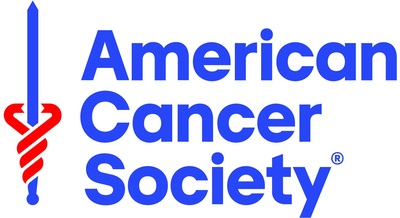Press Releases
ATLANTA, Nov. 1, 2019 /PRNewswire/ -- To help support cancer caregivers, the American Cancer Society (ACS) has created a Caregiver Support Video Series that can answer caregivers' most-asked questions and address their biggest concerns. The series consists of 16 short videos on topics ranging from helping cancer patients with pain and symptom management to self-care for caregivers themselves.

"Caregivers are essential to providing support and encouragement to cancer patients," said Rachel Cannady, strategic director of cancer caregiver support, American Cancer Society and creator of the videos. "This video series is a great resource to help educate caregivers as they assist with the everyday needs of cancer patients and offers guidance to improve quality of life."
NeNe Leakes, American Cancer Society Ambassador and star of Real Housewives of Atlanta contributed to the series by sharing her personal perspective for caring for her husband Gregg battling cancer.
"When Gregg got diagnosed with cancer, our entire family had cancer. Being a caregiver has got to be one of the hardest jobs, and my heart goes out to every caregiver out there who is supporting their family and are having to put everything on hold in order to do so," said Leakes. "I don't know if there's a right way or wrong way to do it, but I was very stressed out and there isn't anything that can ever prepare you for this."
The Caregiver Support Video Series is a collaboration between ACS and EMD Serono through its Embracing Carers™ initiative, to help caregivers support loved ones at all stages- whether hours after a diagnosis, in the middle of the night, or months into treatment and recovery. Through this educational outreach, ACS hopes to improve cancer survivorship and reduce caregiving-related health problems that caregivers often experience.
Caregivers are a growing group with an estimated 16.9 million cancer survivors currently in the US. However, a 2017 survey by Embracing CarersTM found that 31% of unpaid caregivers surveyed in the US have received no information or practical support in the past 12 months. This makes providing practical and easy-to-follow training for caregivers a top priority for ACS.
Doctors and nurses receive years of training in patient care, but family caregivers are often thrust into this role overnight with no training on the critical processes that their loved ones now depend on them to do properly every day. The series offers caregivers access to how-to instructions for common vital nursing tasks including:
- Drain care
- Safe lifting of another person
- Pain management
- Recognizing signs of infection
- Medication management
- Nutrition
- Managing common side effects of cancer treatment such as diarrhea, constipation, nausea, mouth problems and fatigue.
To learn more about being a caregiver for a person with cancer, visit cancer.org.
SOURCE American Cancer Society
